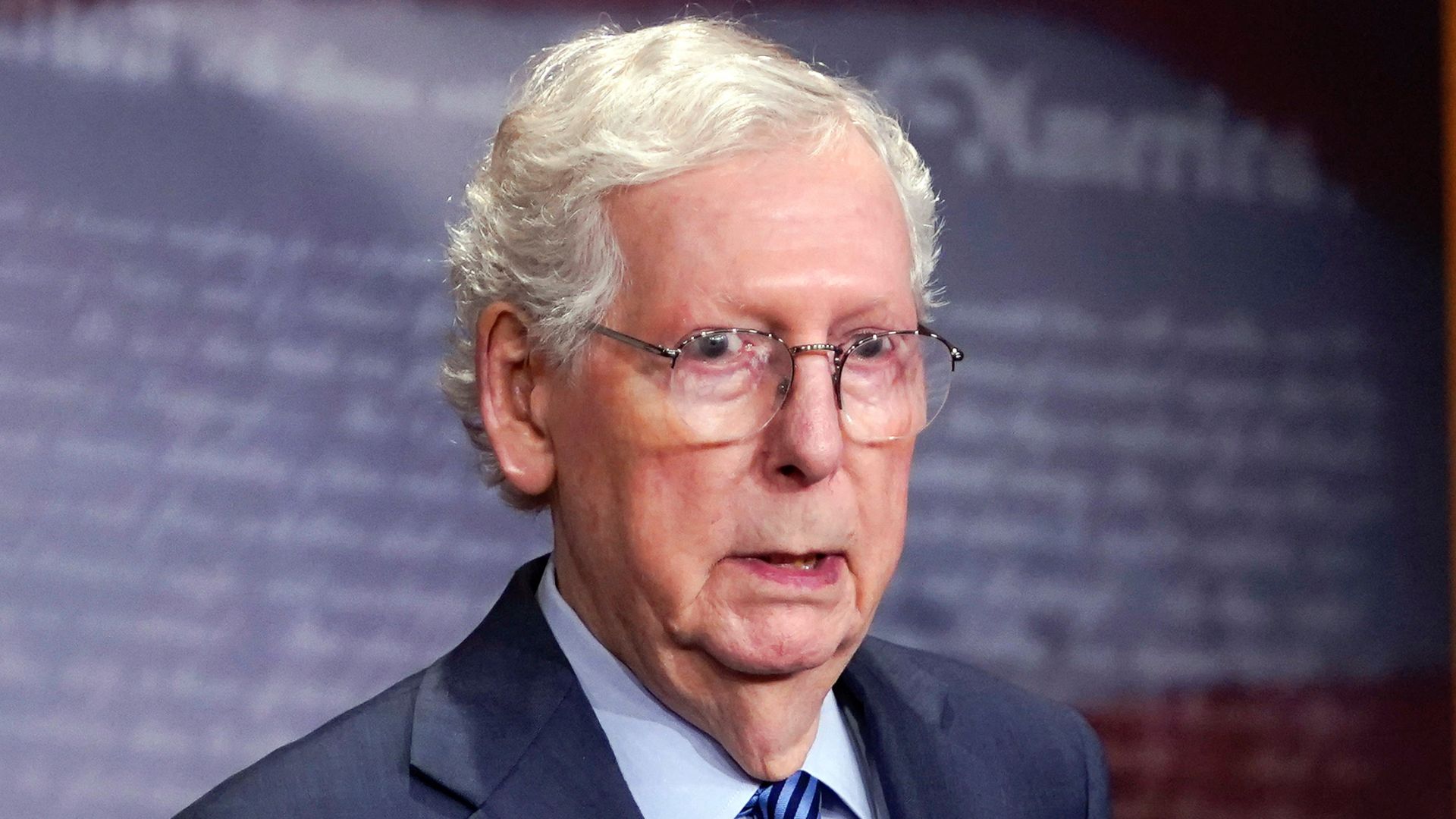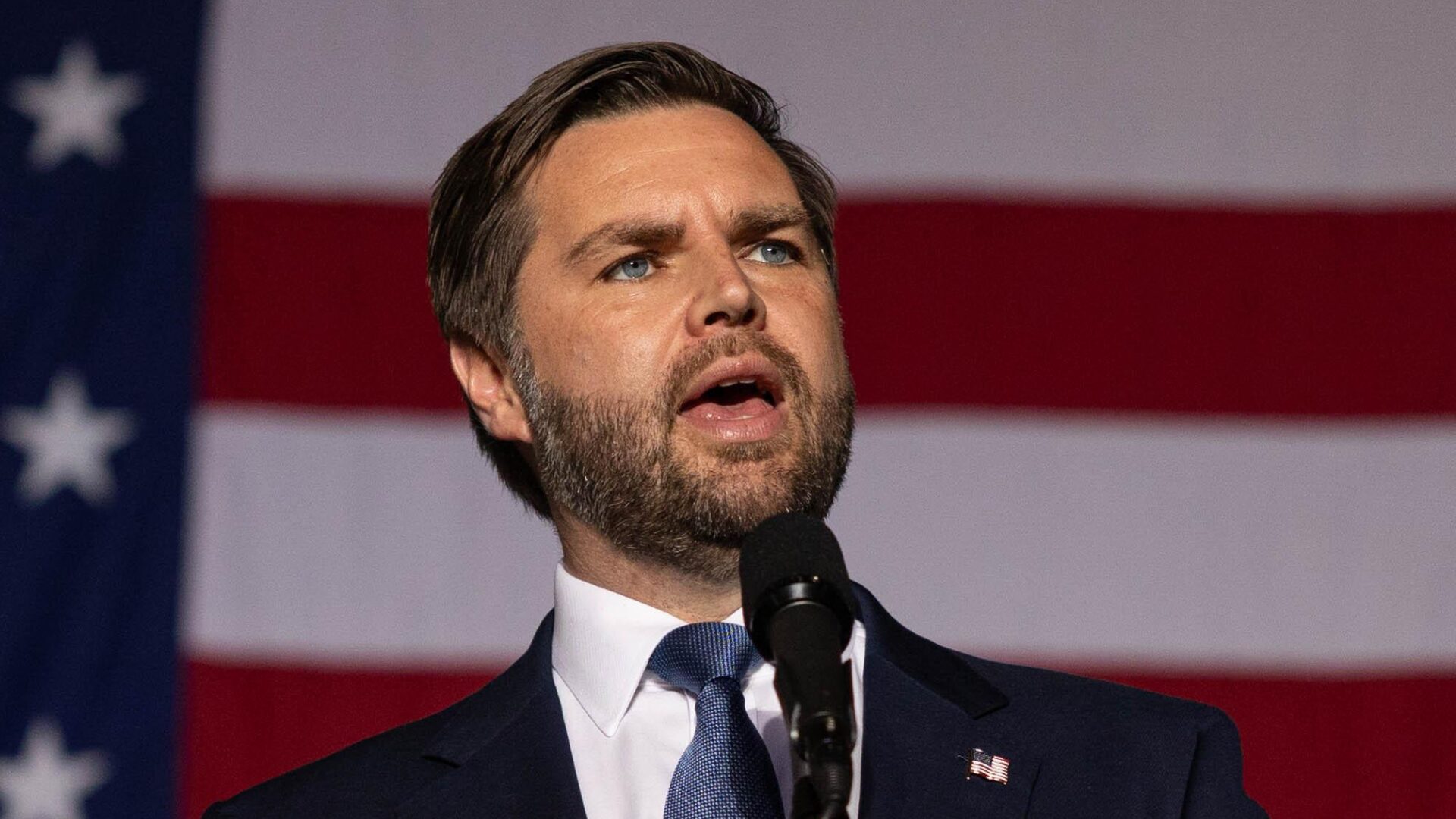Vice President JD Vance publicly criticized Sen. Mitch McConnell (R-KY) following McConnell’s decision to vote against the confirmation of Elbridge Colby for Under Secretary of Policy at the Department of Defense.

Colby was nominated by President Donald Trump and has received strong support from leading figures within the America First movement.
In remarks following the Senate vote, Vance called McConnell’s opposition “one of the great acts of political pettiness I’ve ever seen.”

The Vice President’s comments reflect a widening divide within the Republican Party over foreign policy and national defense strategy.
“Mitch’s vote today — like so much of the last few years of his career — is one of the great acts of political pettiness I’ve ever seen,” Vance stated, referencing opposition Colby has faced from what he described as globalist factions.
Mitch’s vote today—like so much of the last few years of his career—is one of the great acts of political pettiness I’ve ever seen. https://t.co/Qg6eAOqW4J
— JD Vance (@JDVance) April 8, 2025
This Could Be the Most Important Video Gun Owners Watch All Year
McConnell, who was the only Republican senator to vote against the nomination, issued a statement explaining his position.
The Kentucky senator criticized Colby’s foreign policy views, particularly his emphasis on prioritizing threats in the Indo-Pacific region.
“Mr. Colby’s public record suggests a willingness to discount the complexity of the challenges facing America, the critical value of our allies and partners, and the urgent need to invest in hard power to preserve American primacy,” McConnell wrote.
He went on to argue that Colby’s strategic approach reflects what he described as outdated thinking.
“The prioritization that Mr. Colby argues is fresh, new, and urgently needed is, in fact, a return to an Obama-era conception of a la carte geostrategy,” McConnell said.
McConnell further criticized Colby’s views on reducing U.S. involvement in regions such as Ukraine and the Middle East in favor of focusing on China and the Indo-Pacific.
“Abandoning Ukraine and Europe and downplaying the Middle East to prioritize the Indo-Pacific is not a clever geopolitical chess move,” he said.
“It is geostrategic self-harm that emboldens our adversaries and drives wedges between America and our allies for them to exploit.”
He concluded by warning that the confirmation of Colby could signal what he called “isolationist perversions of peace through strength to continue apace at the highest levels of administration policymaking.”
Scathing statement from Mitch McConell after he votes against Elbridge Colby, who was just confirmed by the Senate for a top Pentagon post.
“Make no mistake: America will not be made great again by those who are content to manage our decline.” pic.twitter.com/tckBmtgAKC
— Manu Raju (@mkraju) April 8, 2025
Colby’s nomination has been closely followed by members of the America First movement, who view him as a critical figure in reshaping the Pentagon’s priorities.
As previously reported by Breitbart News, Colby has been frequently targeted by foreign policy establishment figures in Washington.
Supporters have described him as aligned with President Trump’s strategy and dedicated to reforming defense policy.
“Colby, whom globalists have attacked relentlessly, is someone America First movement leaders revere because he is viewed as a reformer heading into the Pentagon to help Secretary of Defense Pete Hegseth fix the place,” Breitbart News reported.
Donald Trump Jr. weighed in ahead of the vote, emphasizing Colby’s commitment to the administration’s foreign policy direction.
“The DC swamp fears Bridge because they know he’s 100% loyal to my father’s America First foreign policy agenda at the Defense Department,” Trump Jr. said.
He also noted the importance of the vote within the movement, adding, “The entire MAGA movement will be watching this vote very closely.”
Sen. McConnell, who is not seeking reelection in 2026, remains a key figure in Senate Republican leadership but continues to face criticism from Trump-aligned conservatives over his positions on foreign policy and national security.
Join the Discussion
COMMENTS POLICY: We have no tolerance for messages of violence, racism, vulgarity, obscenity or other such discourteous behavior. Thank you for contributing to a respectful and useful online dialogue.
McConnell is a washed up, corrupt politician who’s time is up. Go home. P.S.: his wife is a ChiCom spy.